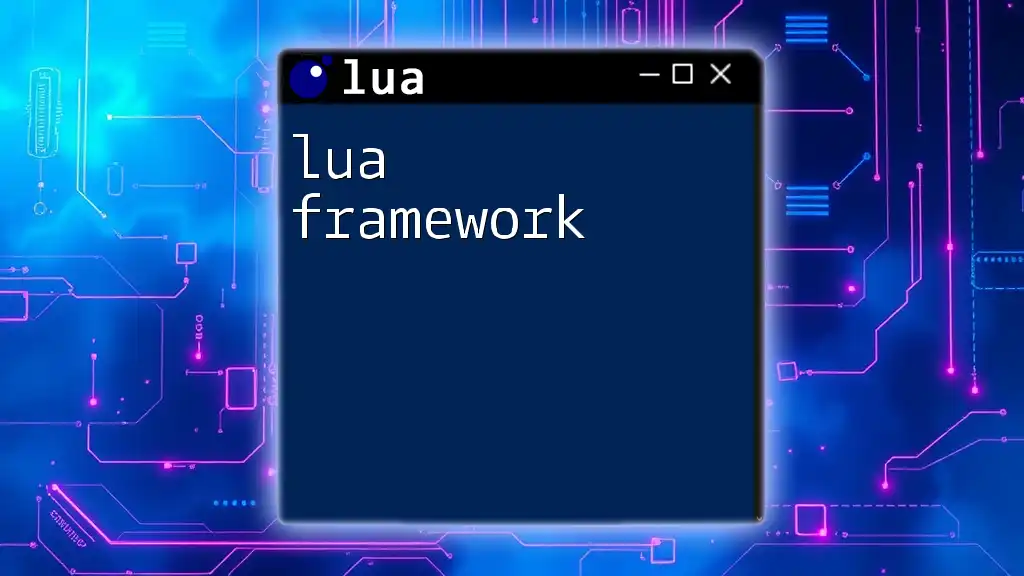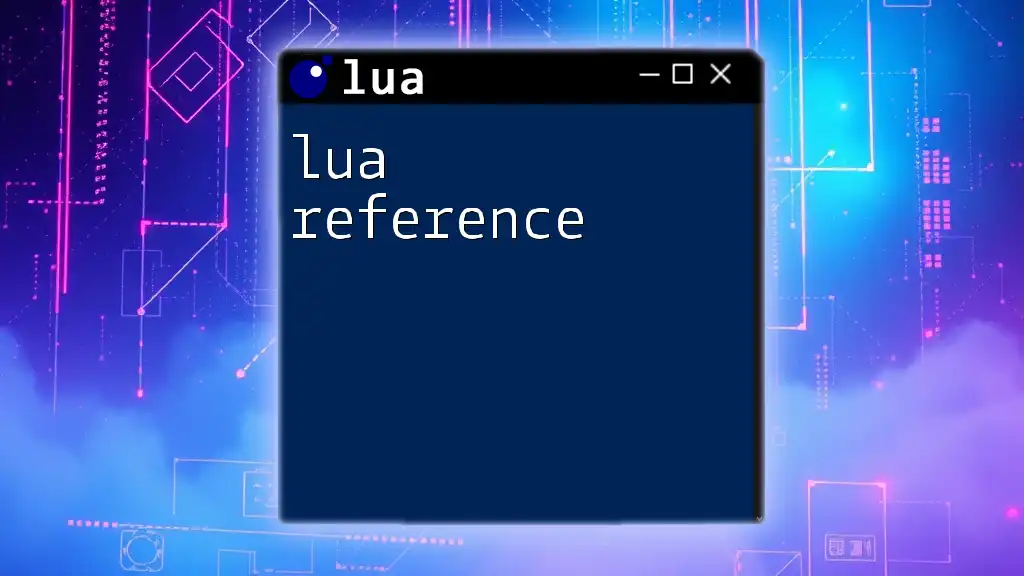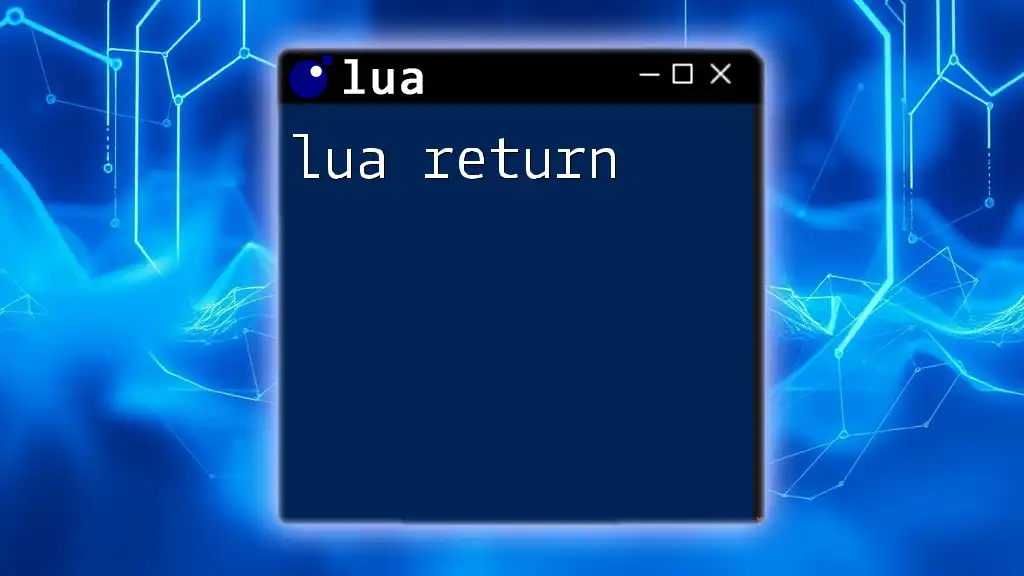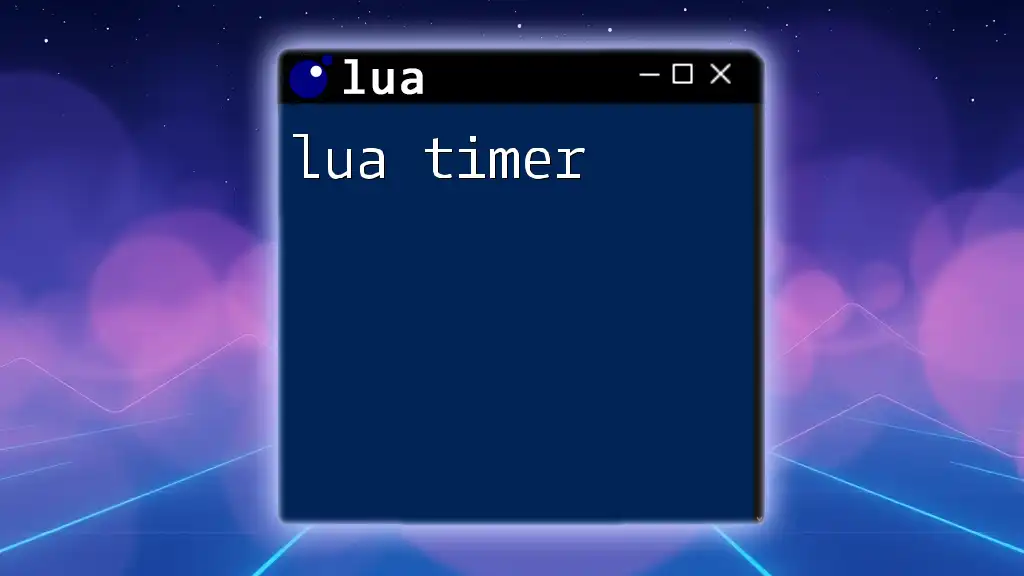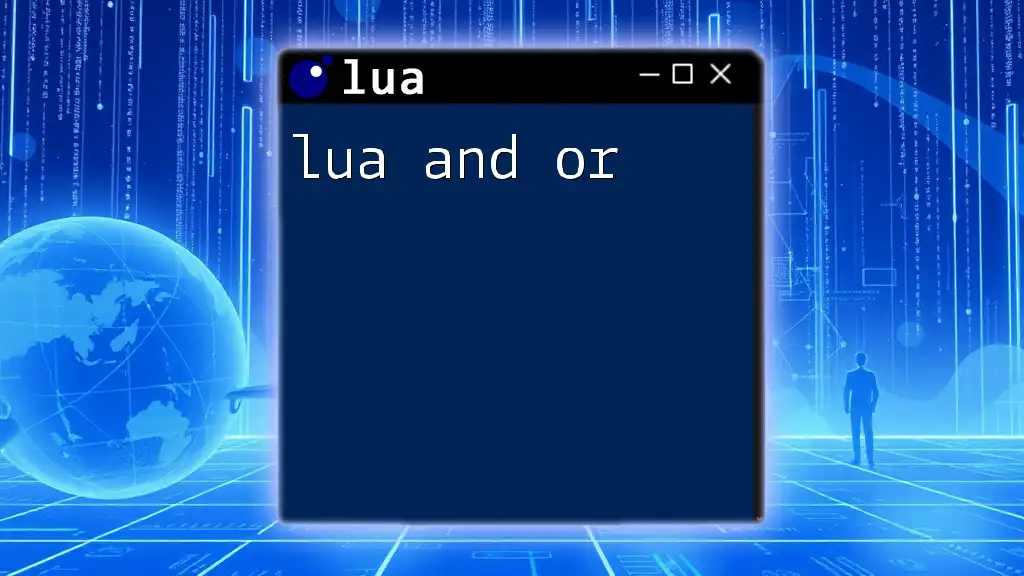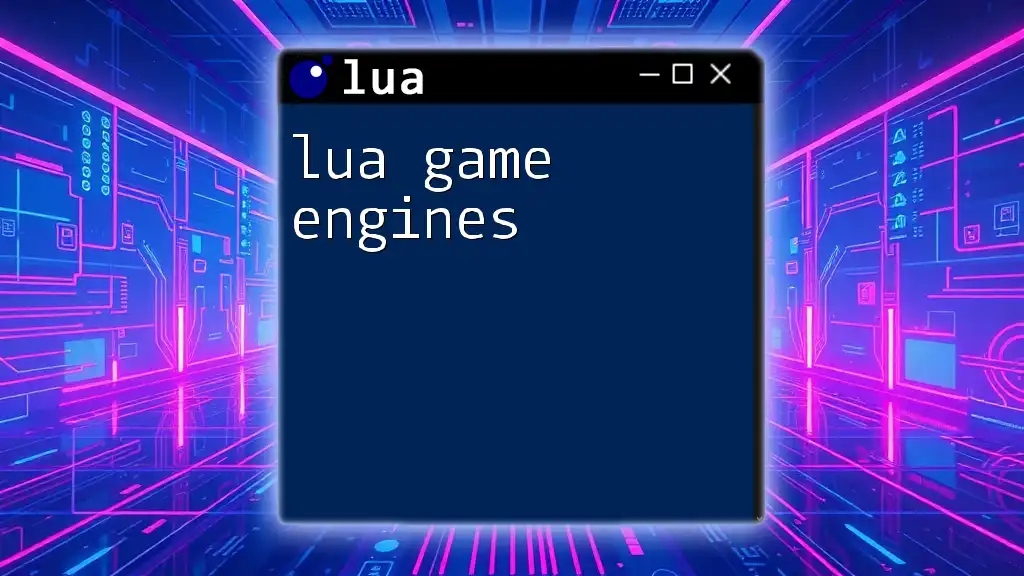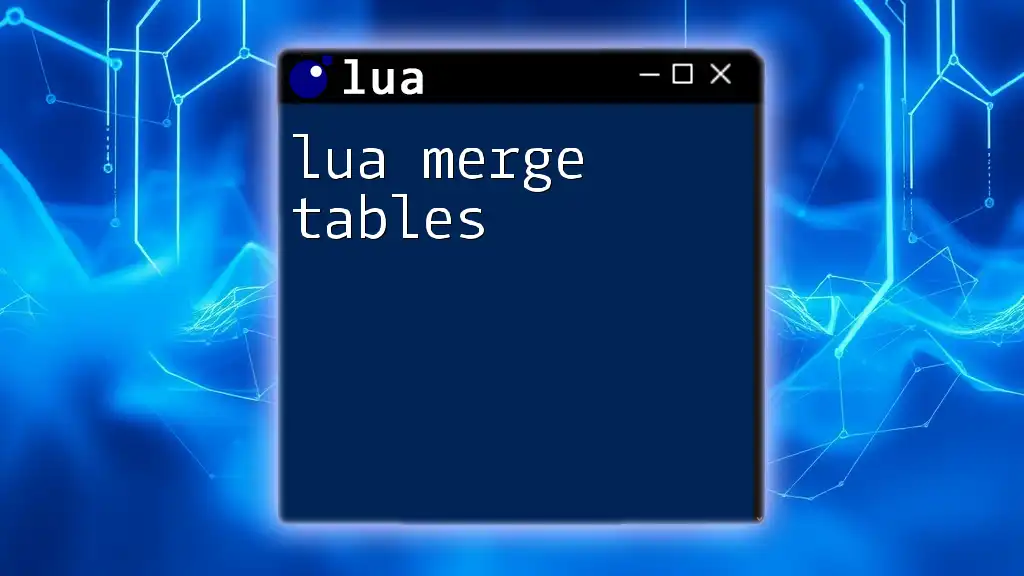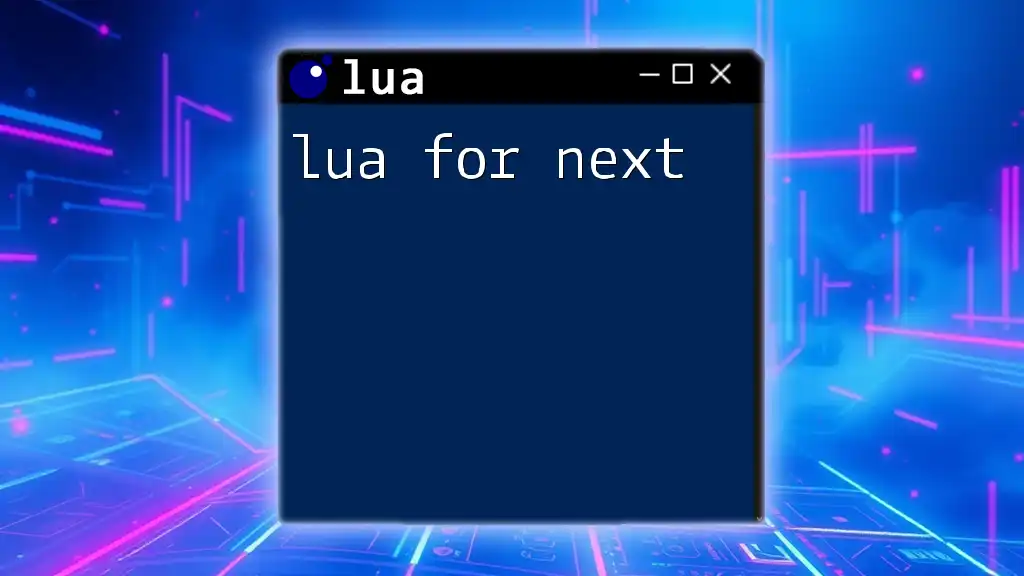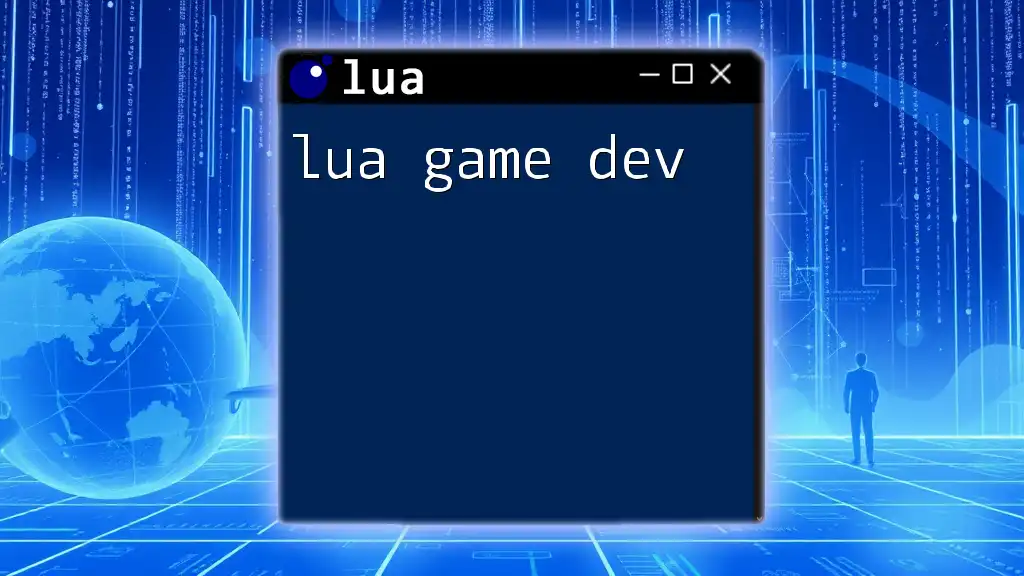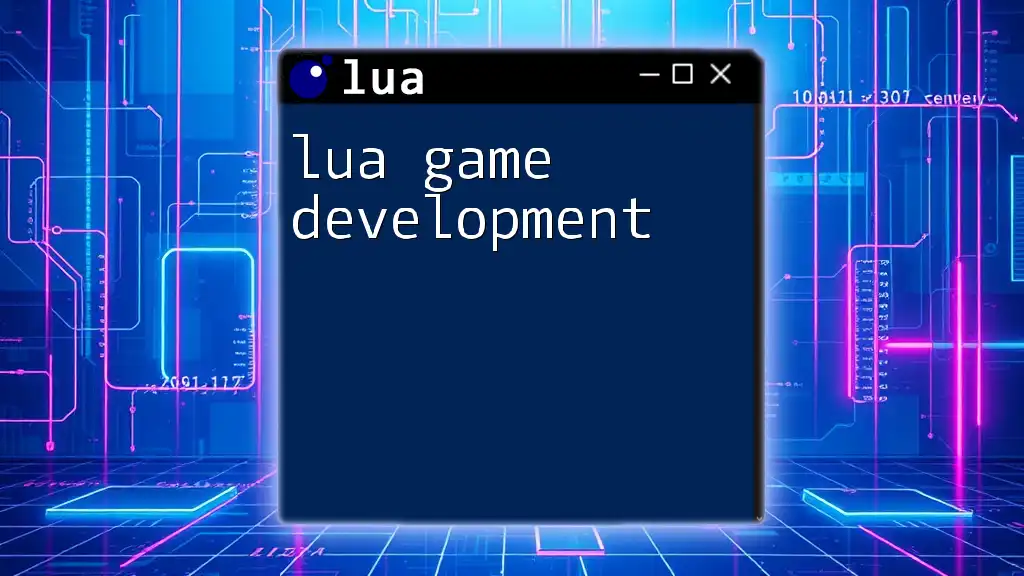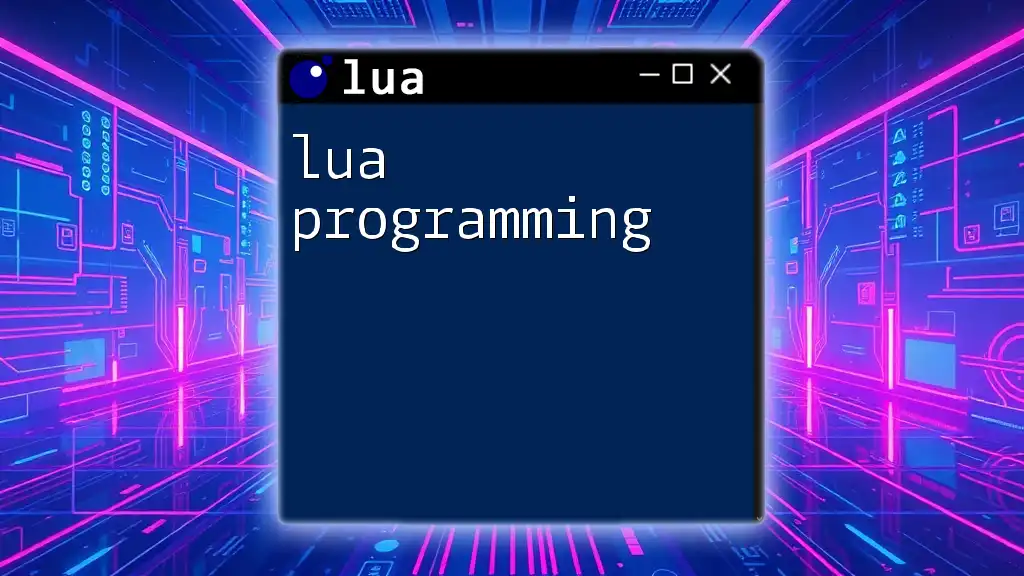A Lua framework is a structured collection of Lua libraries and tools that streamlines development by providing reusable components and conventions for building applications efficiently.
Here's an example of a simple Lua script using a framework:
local composer = require("composer")
local scene = composer.newScene()
function scene:create(event)
local sceneGroup = self.view
local background = display.newRect(sceneGroup, display.contentCenterX, display.contentCenterY, display.contentWidth, display.contentHeight)
background:setFillColor(1, 0, 0) -- Red background
end
scene:addEventListener("create", scene)
return scene
Popular Lua Frameworks
LÖVE
Overview
LÖVE is a popular framework designed specifically for 2D game development using Lua. Its simplicity allows developers of all skill levels to create games quickly, while its powerful features enable advanced game mechanics. The framework enjoys robust community support, providing ample resources, tutorials, and plugins.
Getting Started
To begin developing with LÖVE, you’ll first need to install it. You can download the latest version from the [LÖVE website](https://love2d.org/). Once installed, the general project structure is straightforward:
my_game/
├── main.lua
└── conf.lua
The `main.lua` file acts as the entry point of your game. You can customize settings via `conf.lua`.
Code Example
Here’s a fundamental example demonstrating how to draw a rectangle in LÖVE:
function love.load()
-- Load resources here
end
function love.draw()
love.graphics.rectangle("fill", 100, 100, 200, 200)
end
Key Features
LÖVE provides extensive capabilities including 2D graphics, audio playback, and physics integration. These features allow you to craft visually appealing games with immersive soundscapes and realistic physical interactions.
Corona SDK (Solar2D)
Overview
Corona SDK, now known as Solar2D, is a robust framework tailored for mobile app development. Its cross-platform capabilities enable you to build and deploy applications for both iOS and Android seamlessly.
Getting Started
Setting up Solar2D is a breeze. You can download the development environment from the [Solar2D GitHub page](https://github.com/coronalabs/corona). A simple project structure looks like this:
my_app/
├── main.lua
└── build.settings
The `main.lua` file serves as your primary coding area, where you build your app's core functionality.
Code Example
Here’s a basic snippet that displays a "Hello, World!" message:
local myText = display.newText("Hello, World!", 160, 240, native.systemFont, 40)
Key Features
Solar2D boasts several powerful features, including built-in physics, sensor integrations, and APIs for utilizing device functionalities such as GPS and camera. With these tools, developers can create interactive and responsive applications.
OpenResty
Overview
OpenResty is an all-encompassing web application server based on Lua, designed particularly for high performance and scalability. Utilizing Nginx and Lua, it is an ideal choice for building complex web applications and RESTful APIs.
Getting Started
To set up OpenResty, begin by installing the server from the [OpenResty official website](https://openresty.org/en/). Basic configuration involves editing the nginx configuration file to include Lua handlers.
Code Example
Here’s a simple example demonstrating a basic Lua handler within Nginx:
location /hello {
content_by_lua_block {
ngx.say("Hello, Lua!")
}
}
Key Features
OpenResty excels in providing high concurrency, performance optimizations, and seamless integration with various web services. Its ability to handle thousands of requests per second makes it a top choice for demanding applications.
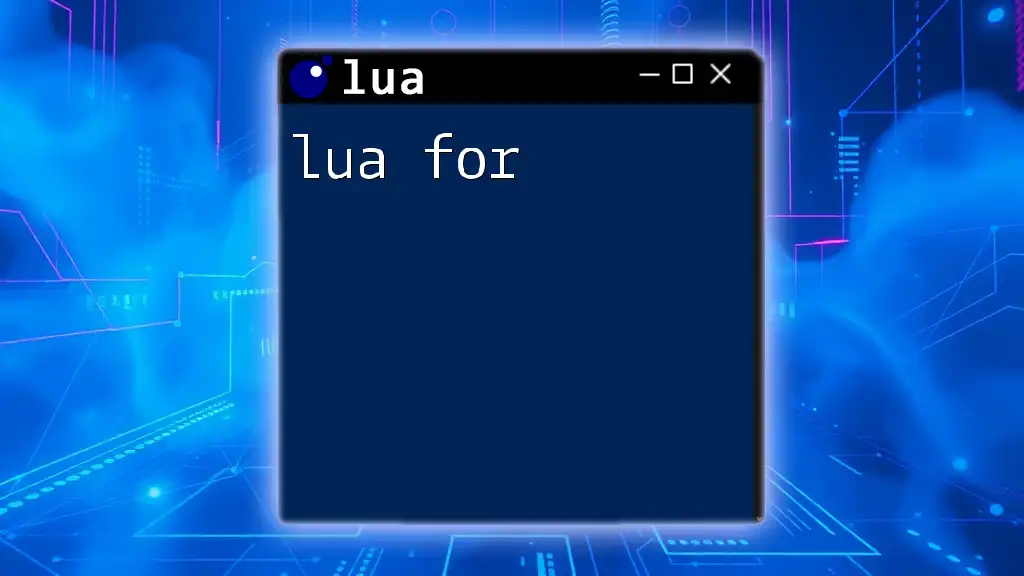
Choosing the Right Lua Framework
Factors to Consider
When choosing a Lua framework, several factors should guide your decision:
- Project Type: Determine whether you're developing a game, mobile app, or web application.
- Community Support: Investigate the availability of community resources, documentation, and forums. A thriving community can aid tremendously in troubleshooting and development.
- Performance and Scalability: Evaluate the performance metrics and scalability options of the frameworks to ensure they align with your project requirements.
Examples
In scenarios where rapid game development is crucial, LÖVE might be the best choice. Conversely, if you’re focused on creating a mobile app, Solar2D offers unparalleled support for device features and cross-platform capabilities.
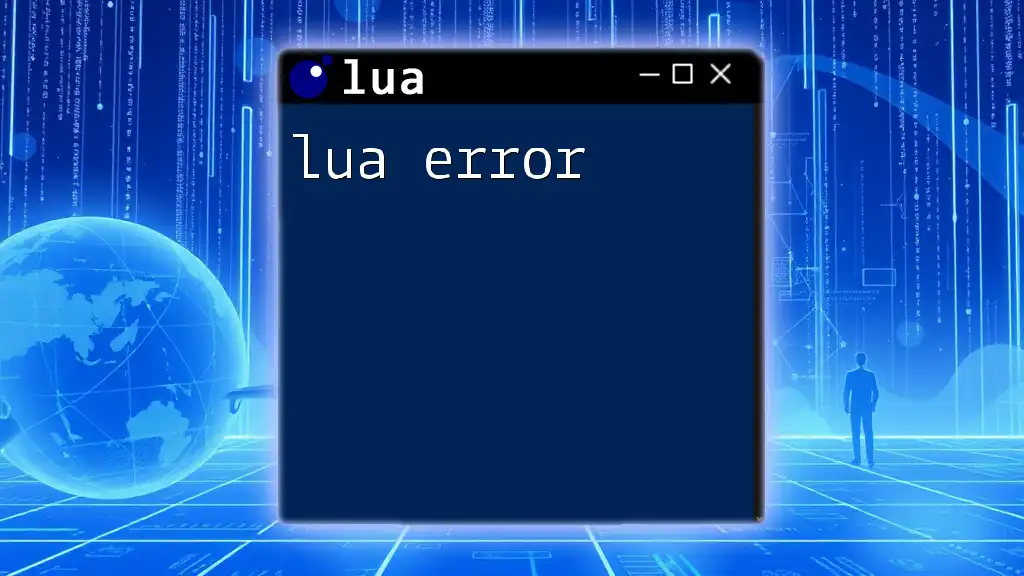
Setting Up Your Development Environment
Tools and IDEs
For a productive development environment, consider utilizing text editors like Visual Studio Code, Sublime Text, or an IDE specifically tailored for Lua development, such as ZeroBrane Studio.
Best Practices for Writing Lua Code
Enhance your coding efficiency by following best practices:
- Consistent Coding Style: Adopt a straightforward and consistent naming convention for variables and functions.
- Error Handling: Implement robust error handling practices. Lua’s `pcall` function allows you to catch errors gracefully.
- Debugging Techniques: Familiarize yourself with debugging tools and techniques to identify and rectify issues in your code promptly.
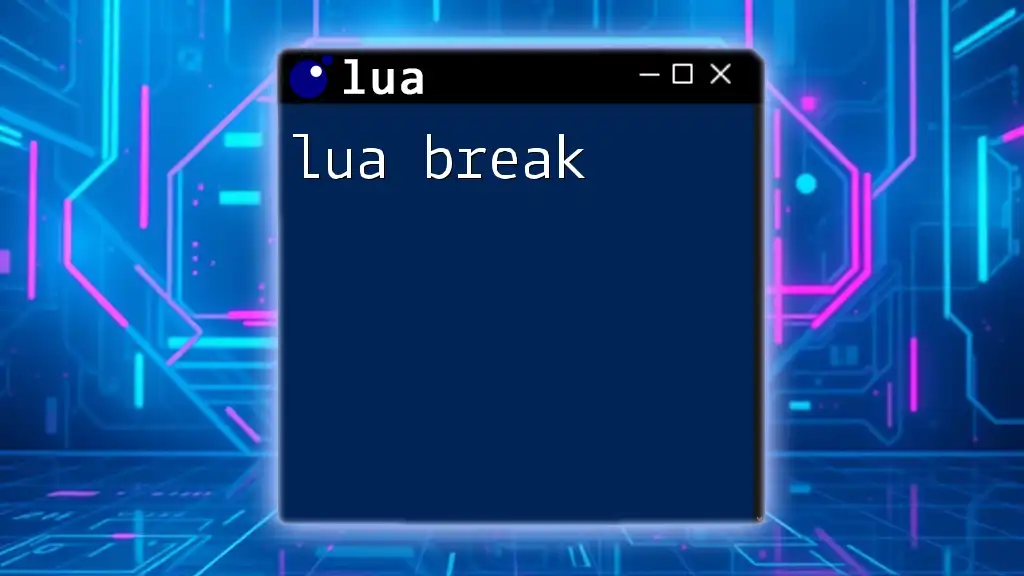
Advanced Framework Features
Plugins and Libraries
Using External Libraries
External libraries are invaluable in enhancing the functionalities of your framework. Many popular Lua frameworks support LuaRocks, a package manager for Lua modules, making it easy to include and manage external libraries.
Examples
For LÖVE, libraries such as HUMP (a helper library for game development) and STAGE (for state management) can significantly streamline your development process.
Performance Optimization
Profiling Your Code
To monitor performance effectively, utilize profiling tools like `LuaProfiler`, which help you pinpoint bottlenecks in your code.
Optimization Strategies
Consider these strategies to improve execution speed and memory management:
- Minimize Global Variables: Use local variables wherever possible as they offer faster access times.
- Efficient Looping: Optimize loops by minimizing the number of iterations and avoiding complex operations inside the loop.
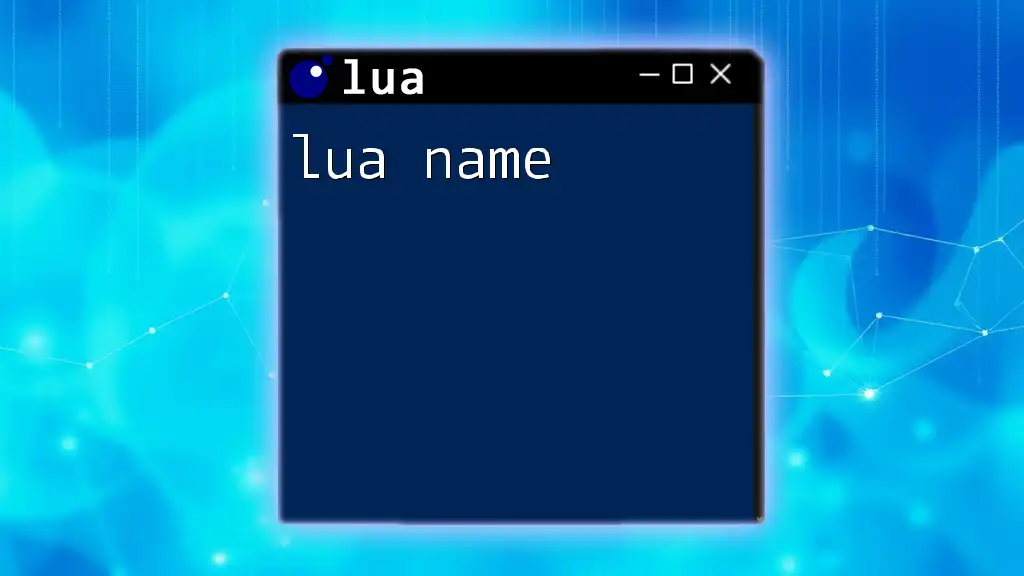
Common Challenges and Solutions
Integration Issues
It's not uncommon to encounter integration issues when using different libraries or frameworks. To troubleshoot these problems effectively:
- Refer to Documentation: Review the official documentation and user guides.
- Search Community Forums: Many issues have been encountered by others, often documented in forums like Stack Overflow or the respective framework’s community forums.
Community Resources
Engaging with the community can provide significant insight and solutions. Explore various forums, documentation sites, and online tutorials for reinforcement and guidance.
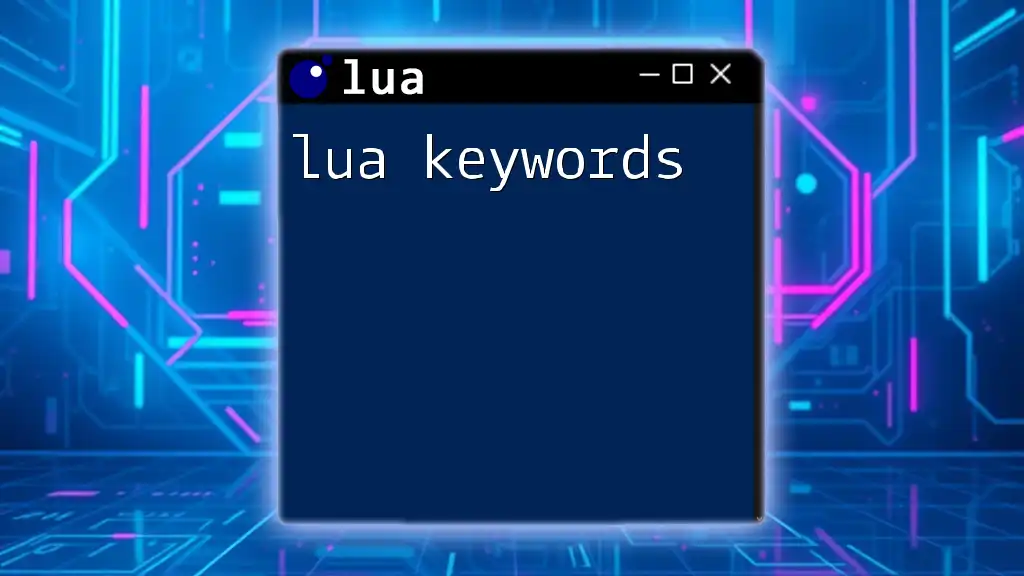
Conclusion
In summary, utilizing a Lua framework can enhance your development experience, streamline your workflow, and accelerate your project timelines. Whether you're diving into game development with LÖVE, building mobile applications with Solar2D, or creating web services with OpenResty, the right framework can empower you to achieve your goals efficiently.
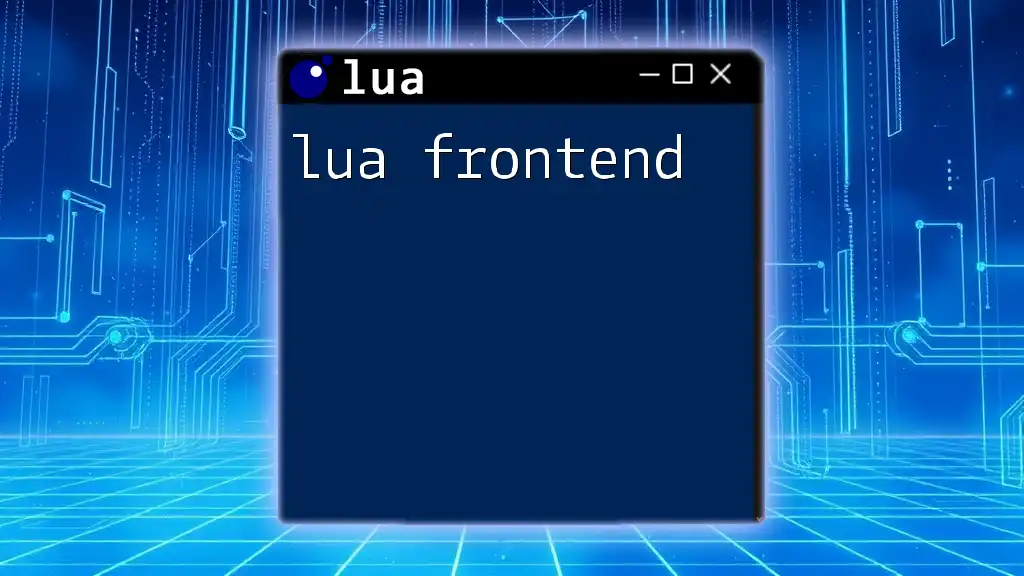
Additional Resources
Books, Online Courses, and Tutorials
Invest in source materials such as books on Lua programming, online courses on platforms like Udemy or Coursera, and comprehensive tutorials to deepen your understanding of Lua and its frameworks.
Further Reading
Dive into links to compelling articles and comprehensive documentation to keep your learning ongoing and relevant. With a solid foundation in Lua and its frameworks, you'll be well on your way to mastering this versatile language.

